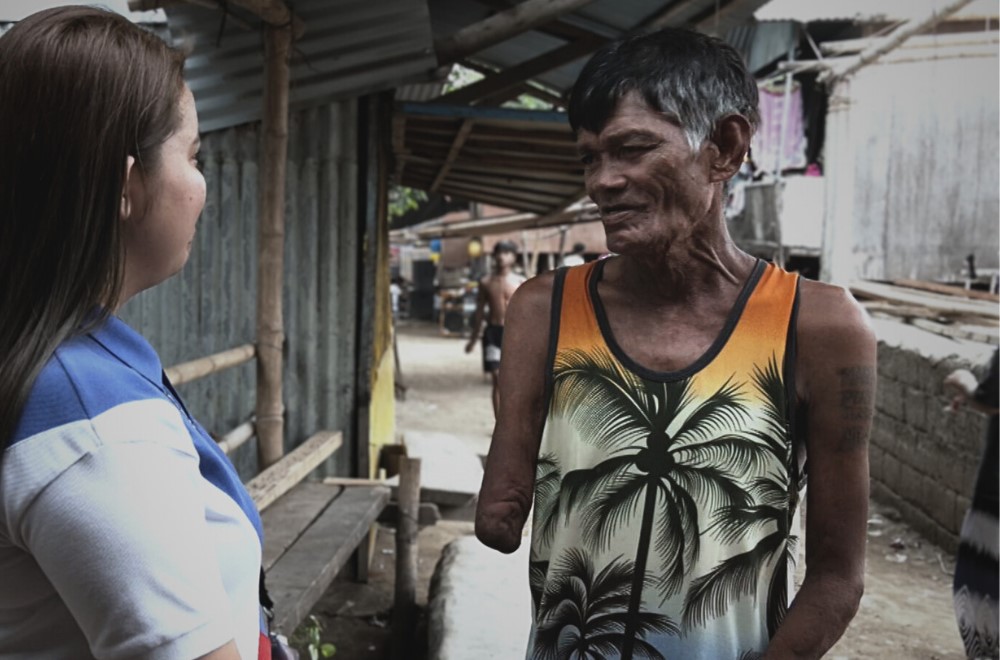
THE BADJAO TRIBE'S FIGHT WITH POVERTY IN BATANGAS CITY
Struggling against harsh realities in Batangas City, the Badjao tribe, originally from Sulu, continues to grapple with poverty.
Their fervent hope is that, soon, they will trade outstretched hands for fishing rods and other dignified paths to sustain their livelihoods.
They dream of a future where begging is a thing of the past.
One such individual is Maracani Pusasi, 60, who lost his hands in a battle with pirates while fishing in Sulu decades ago.
Pusasi and his family relocated to Batangas City in 2000 where they chose to settle.The local government designated Barangays Wawa and Malitam as areas where the Sama-Bajau tribe, including Pusasi, could reside.
Unable to work due to his disability, Pusasi resorted to begging.
"Hindi ko na kaya ang trabaho. Kung sino ang tumulong sa amin eh di magpasalamat din ako.... mas maganda rito, huwag na roon, kasi marami humahabol sa amin mga pirata [o] Abu Sayaff, yan ang nilayasan namin sa probinsya [namin]," Pusasi said.
(I could no longer work. Whoever helps us I am grateful... it's better here compared to where we were before since pirates or Abu Sayaff always pursue us. They are the ones we fled from in our province.
Approximately 600 Sama-Bajau families now live in Batangas City. Fishing remains their main source of livelihood.
Sonny Alamani, the leader of the Sama-Bajau community in Batangas City, has been striving to uplift his family from poverty. He, his wife, and their eight children moved to the city in 2000.
"Maganda ang hanapbuhay, nakaka-proud. Nakapag-aral ang mga anak namin dito sa tulong ng city. Noong kami sa Lamitan, kapag pumunta ka sa isang bahura kailangan mo magpaalam," Alamani said.
(Work is good, we feel proud. Our children have education with the city's help. In Lamitan, when you fish at a sandbank you need to ask for permission.)
However, Alamani said some members of their community prefer begging over working. Despite their efforts to encourage everyone to work, some members persist in their ways.
"Talagang hindi ko matanggap; hindi ako nagkulang [sa pagpapaala na magtrabaho] kasi nakakahiya rin kasi ka tribu ko sila eh... pero [sa] payo ko sa kanila, hindi sila nagtiwala," he said.
"Pagtingin nila ayos lang sila kahit pinandirian ng mga katagalugan, minsan sinasabihan na maghanapbuhay ka, malakas ka naman, balewala sa kanila," he added.
(It is hard for me to accept; I did what I could [to remind the need to work] because it is embarrassing because they from my tribe... that was my advice, but they would not trust me.
In their point of view it is acceptable even when Tagalogs look at them with disdain, they are told to find work, that they are strong, it means nothing to them.)
SUPPORT
Barangay Wawa said they're committed to supporting the Badjao community with necessary documents such as certificates of indigency and barangay clearances needed for aid.
"Kami rin po ang nagiging daan ng mga private organization [at] non-government organization na makatulong para maipaabot sa kanila [yung tulong]. Tulad po ng medical mission, mga ayuda na in-kind at in-cash, na binibigyan ng tulong sa Badjao community," Jerome Grimpluma, a councilman in Barangay Wawa, said.
For Romelyn Cabungcol, a Tagalog woman married to a Badjao, this support is invaluable. Despite the hardships, she and her husband strive to provide for their family through honest means.
"Sila po ay maintindihin sa pamilya, maasikaso po sila tapos sila po eh ang [priority] ay paghahanapbuhay para [may] maipakain sa pamilya," Cabungcol said.
Many in the Badjao community hope that begging will no longer be a common practice and that their members will return to fishing or other respectable means of livelihood.—GMA Regional TV News
This article The Badjao tribe's fight with poverty in Batangas City was originally published in GMA News Online.
2024-06-30T05:07:48Z dg43tfdfdgfd